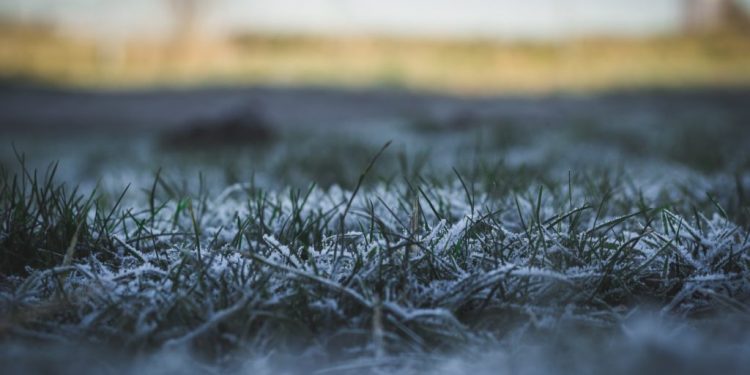Maintaining a lawn, sprinkling it daily to end up in winter, seeing it lifeless is a nightmare. You might be asking, “Why does grass die in winter even when it is cautiously taken care of?”
The following are the possible causes of how and why does grass dies in winter.
1. Winter desiccation.
It occurs when melted snow is higher than the water absorbed by the grass. Grasses naturally die from a lack of moisture inside.
2. Fungi.
Humans can have a disease, so do plants. Microdochium patch and Typhula blight are examples of plant diseases. Fungal pathogens are the cause of these diseases.
Microdochium nivale (pink snow mold) infects the leaves but not the roots and crowns. Gray snow molds can result from Typhula incarnata or Typhula ishikariensis. T. incarnata is less damaging. T. ishikariensis infects the crown, resulting in severe plant injury or dead grass.
3. Salt damage.
If you are using salt to deice your lawn, stop it. Salt absorbs water, which in turn can sip out moisture from your grass, killing them.
4. Overwintering insects and pests.
Not all organisms and animals are far from you in winter. Another reason grass dies in winter is insects that find food and warmth below your lawn and eat your grass. Here are some examples of insects finding comfort in your lawn.
a. Grubs. Unknown to you, these larvae chew on your grassroots. As they become adult insects, they further attract predators who will dig up in your lawn.
b. Chinch bugs. These pests will kill your grass as they suck out its moisture. While feeding on your grass, they leave anticoagulant that blocks the plant’s tissues. These will hinder nutrients and moisture from circulating, leaving your plants to die.
Does grass die in winter? Some, because they are being feasted on during winter.
5. Lack of soil nutrients.
Even in winter, plants need nitrogen, phosphorous, and potassium to survive. Lacking nutrients might be the cause of yellowish grass.
Lawn problems like why does grass die in winter do not appear only in winter. Deficient soil nutrients, pests, and inappropriate lawn care practices cause issues too.
Instead of asking how and why does grass dies in winter, prevent your grasses from dying with these tips.
Useful Tips
- Give your lawn a clean cut. Tim Johnson, director of horticulture in Chicago Botanic Garden, suggests this. Don’t mow too low or leave the grass too tall. Mow at two and ½” to 3”. Keeping away dead grass will prevent fungi from forming up in your lawn. It will also prevent your grass from rotting.
- Water adequately. Provide adequate moisture to the soil from summer to late fall. Avoid overwatering to prevent soil compaction and drowning. It will help in avoiding water desiccation.
- Enrich your soil. Have a habit of giving your soil nutrients even before winter. Because your lawn gives off a green color does not always ensure your soil’s nutrients. Fill in your soil with enough compost or fertilizer.
- Fungicide. To keep off destructive fungi, apply fungicide in late fall. Follow directions in proper use.
- Search up your grass. Grass species call for different management, weather conditions, and even soil pH levels. Search for the types of grass that withstand winter conditions. Some plants are excellent in winter hardiness. Find out how you can help your kind of grass to survive winter.
- Deice with sand or cat litter. Instead of deicing your grass with salt, use plant-safe deicers such as sand or cat litter.
Sometimes, plants react late. Ask yourself first what you did in summer and fall before asking how does grass dies in winter. The problems are not only from winter but from the earlier seasons.
Other Effective Ways
Winterkill is more damaging than we can think of. It does kill not only grass but also some animals. Although we want to avoid this part, people react or cope with their lawn by:
- Adding fertilizers: Some use fertilizers, hoping to revive the grass.
- Tilling the soil: This improves aeration and soil drainage. Also, dead grass adds nutrients to the soil.
- Reseeding: Others try to revive patches of their lawn by reseeding.
- Resodding the lawn: If you want a fresh-looking lawn in spring, this is the last but best option you have.
It is important to solve the problem of why does grass die in winter. Grasses contribute to the environment and us, humans. It improves the air quality we breathe by taking in carbon dioxide and giving us oxygen. It also prevents soil erosion and improves soil quality. In times of stress, grasses calm us. Hence, it is good to ask how and why does grass dies in winter. By knowing the reason behind this will help you to be a responsible caretaker of your grass.











